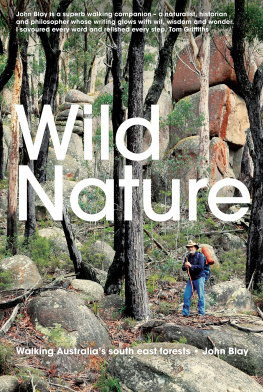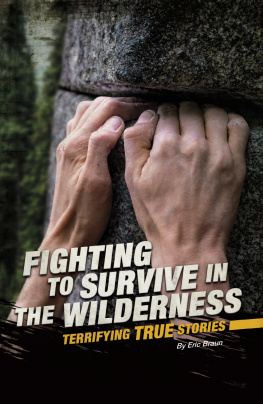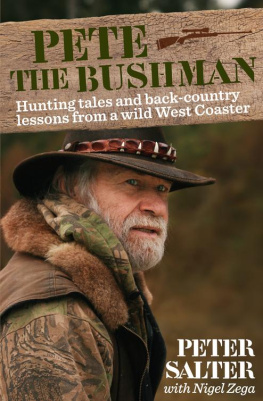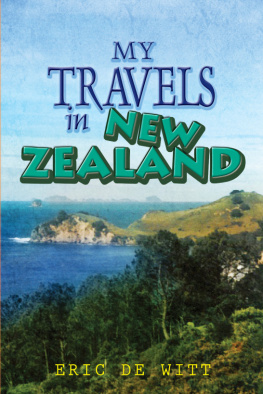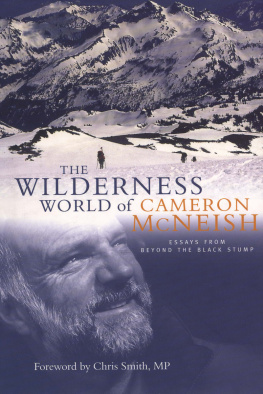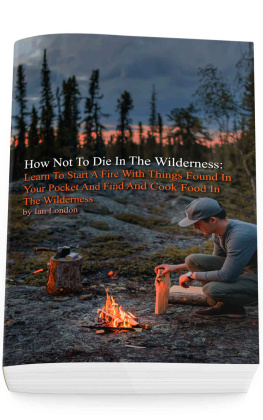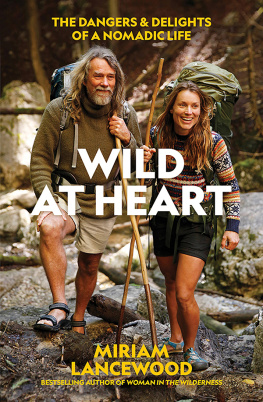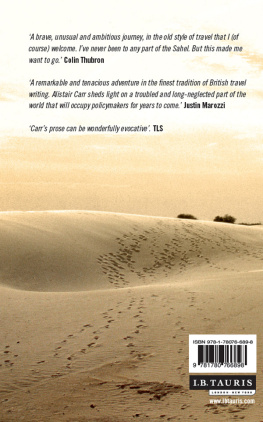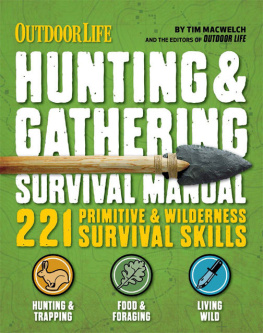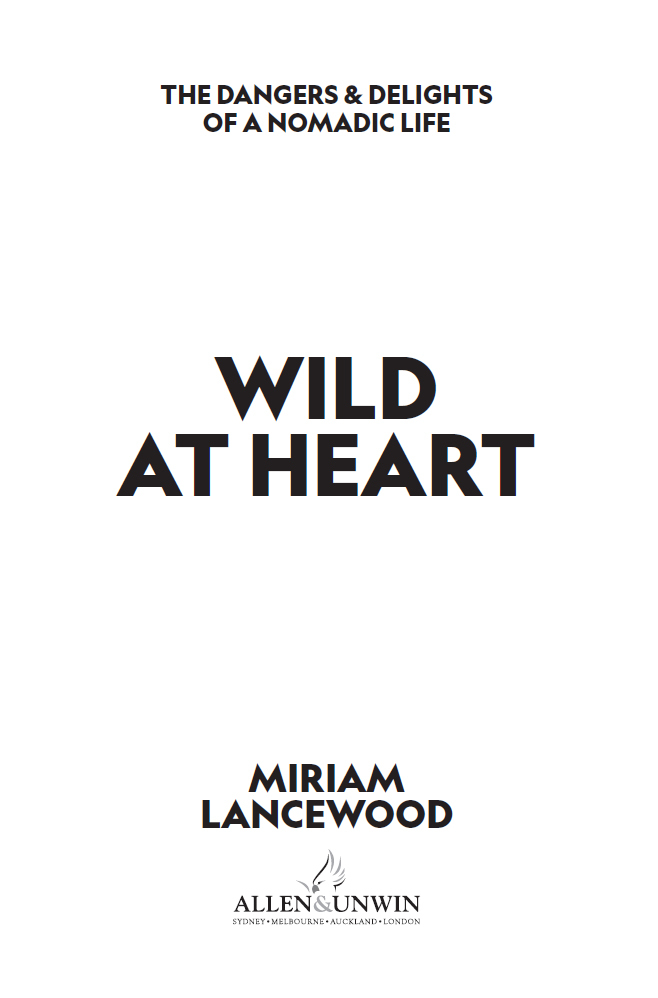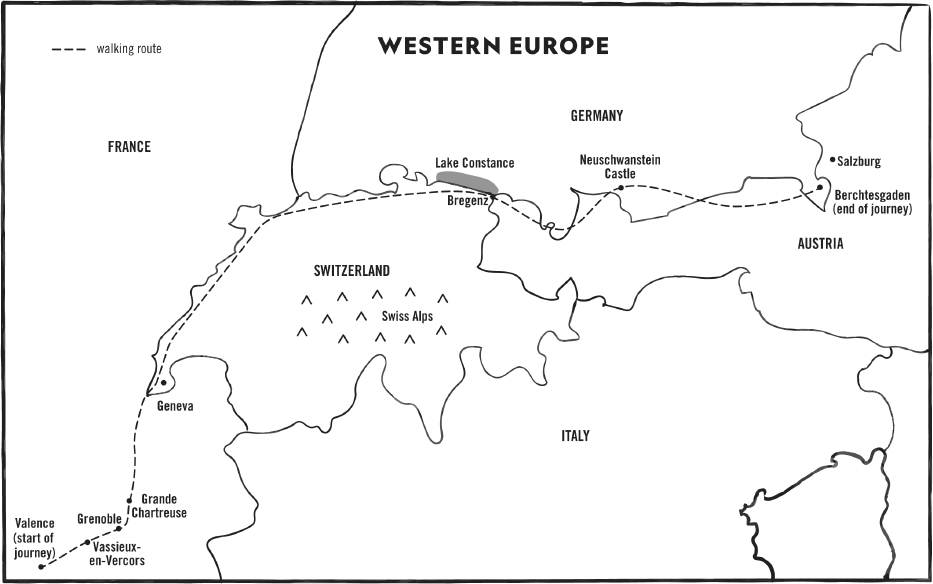Praise for Woman in the Wilderness: A story of survival, love and self-discovery in New Zealand
In the great tradition of A Life on Gorge River and all those memoirs of people who go off-grid to eke out a wilderness existence comes one that is distinguished by the authors talent for descriptive writing and her eagerness to tackle existential issues. Readers wont fail to be impressed not just by these qualities but also by Lancewoods courage, tenacity and resourcefulness in often harrowing circumstances.
Paul Little, North & South , New Zealand
Extraordinary. The Spinoff , New Zealand
Woman in the Wilderness is intriguing and mesmerising.
And Miriam and Peter are the freest people I have met.
Ben Fogle, host of UK television series New lives in the wild
Its an astonishing book. Libration , France
Its a most beautifully written book, it makes you reflect on your own life. Humberto Tan
(Dutch TV presenter of RTL Late Night )
Woman in the Wilderness is a highly inspirational bestseller in which Lancewood delves into the boundaries broken, challenges faced and adjustments made since she started living off the grid.
Savoir Flair , Dubai
First published in 2020
Text Miriam Lancewood, 2020
All images from the authors private collection
Some names, places and identifying details have been changed to protect the privacy of individuals.
All rights reserved. No part of this book may be reproduced or transmitted in any form or by any means, electronic or mechanical, including photocopying, recording or by any information storage and retrieval system, without prior permission in writing from the publisher.
Allen & Unwin
Level 2, 10 College Hill, Freemans Bay
Auckland 1011, New Zealand
Phone: (64 9) 377 3800
Email:
Web: www.allenandunwin.co.nz
83 Alexander Street
Crows Nest NSW 2065, Australia
Phone:(61 2) 8425 0100
A catalogue record for this book is available from the National Library of New Zealand
ISBN 978 1 98854 738 1
eISBN 978 1 76106 049 6
Front cover image: Murdo Macleod in Bavaria, Germany
Internal and cover design by Megan van Staden
This book is dedicated to my husband Peter Raine, who inspires many with the fearless decisions he takes in his life.
CONTENTS
I was born in 1983, and grew up in a loving home in the Netherlands. After my studies I worked for a year in Africa and then travelled to India, where I met Peter, a New Zealander, who had resigned five years earlier from his university lecturer position to live a free and nomadic life there. Together we trekked through the Himalayas, South East Asia and Papua New Guinea, before arriving in New Zealand several years later.
After I worked as a physical education teacher for ten months, we gave away all our belongings, said goodbye to family and friends, and walked into the heart of New Zealands South Island wilderness. We were curious what would happen with body and mind when living in a vast and undisturbed landscape. One year became two, and in the end we lived as nomads for seven years in the mountains.
With minimal food supplies, we survived mainly off hunting wild animals, and gathering plants and berries. I learned how to hunt with a bow, and later with a rifle, and Peter made tasty dishes of the goats, pigs and rabbits I brought back. We learned about medicinal plants, Peter taught me how to grow a garden, we trapped possums and I treated the fur to sew garments. We cooked on fires, were never far from fast-flowing rivers and on sunny days we climbed the mountains. Sometimes we didnt see another person for weeks on end, but we never felt lonely in the beauty and stillness of the Southern Alps. We found peace, clarity and happiness.
After seven years in the wilderness, we decided to take on a new adventure, leave New Zealand and walk through Europe
We bade farewell to the snow-capped mountains and forested valleys, the clear rivers and pristine lakes, the icy glaciers and rugged coasts. We watched the embers of our fire fade, drank for the last time the pure water from a clear river. We whistled goodbye to the t and the bellbird, rolled up our tent, shouldered our packs and walked to the airport. We were ready to explore a new frontier: Europe.
Its a big continent, something is bound to happen, Peter had said. If I dont go now, Ill never go.
We flew for twenty-four hours over clouds, oceans, deserts and vast areas of wilderness. In Paris we were shuffled out of the plane and directed through corridors and hallways towards Security and Customs. I had not seen so many people in one place for a long time, and looked at all the different faces while listening to the sound of many languages. Flashing screens told us where to go and what to expect next. Clocks everywhere showed us the time we had left for the day and in the distance, robotic voices were calling boarding times. But the dominant sound was suitcases on wheels going over the ridges of the floor tiles, tiggedee, tiggedee, tiggedee.
We moved down long halls towards the train.
We looked for a booth with a real person to sell us tickets, then noticed people queuing up for a machine. We stared at the yellow box for a while. Not wanting to risk a disaster, we decided to ask for help first.
A friendly-looking girl walked in our direction, but shook her head when I approached, and disappeared into a tunnel. Then a barefoot boy came by begging for money. He looked Roma, with his dark skin and his half-long uncombed hair. His blue shirt had turned brown, and his shorts were too big for his skinny legs.
Ticket? I raised my eyebrows.
Billet ?
Without even looking carefully he punched some keys in a remarkably rapid sequence. He showed us the required money, and a ticket came rolling out.
Merci beaucoup, monsieur ! I shook his sticky hand, and gave him a euro for his help. The coin went into his pocket, he said goodbye and off he went: the little master of the train station.
The ticket allowed us through the gates, and instantly we joined the mass of people moving with intense focus and speed.
We went with the flow, but instinctively I kept my back to the wall so that I could observe everything around me. For years I had hunted the forest, favouring shadows, often with my back against a tree or the rocks, watching for movement. The same instincts prevailed, even in the middle of Paris.
We moved through many tunnels and the smell was gloomy and greasy. It felt strange to be underground, invisible and devoid of fresh air. Inside the train we left our packs on and stood swinging in the middle, holding on to the oily poles as millions had before us. Everyone sat in silence.
When we made it to our stop, we rushed to the natural light of the station platform and felt grateful to be back among the living.
After a little wait in the beautiful old railway station, we boarded a train south.
We had left New Zealand in the autumn; in France, spring was bursting forth. From the train we saw everywhere blossoms and flowers, trees with fresh new leaves. There were gentle rolling hills, fields with hedges, strips of bright green forest, and often the distant spires of village churches.
Some years ago, my parents had sold everything in the Netherlands and immigrated to France. In the Ardche, in the south-east, they bought an old house with a mill dating from the sixteenth century. In their back yard a beautiful stream flowed between rocks and boulders. It was a land of hills and forests, chestnuts and blueberries, and from the hilltops the French Alps were clearly visible.


